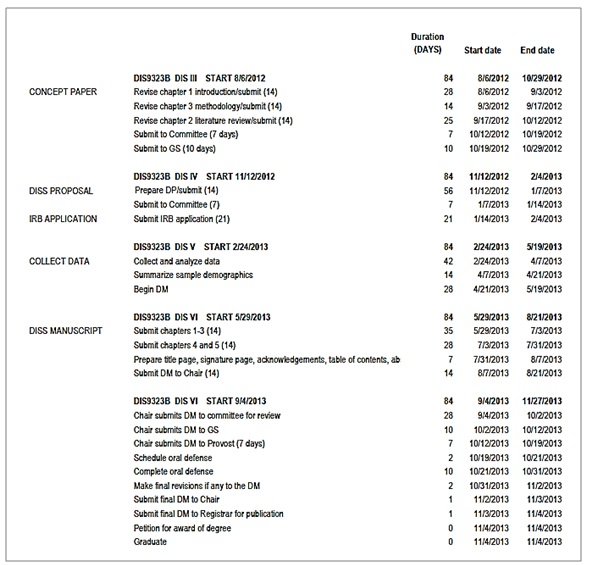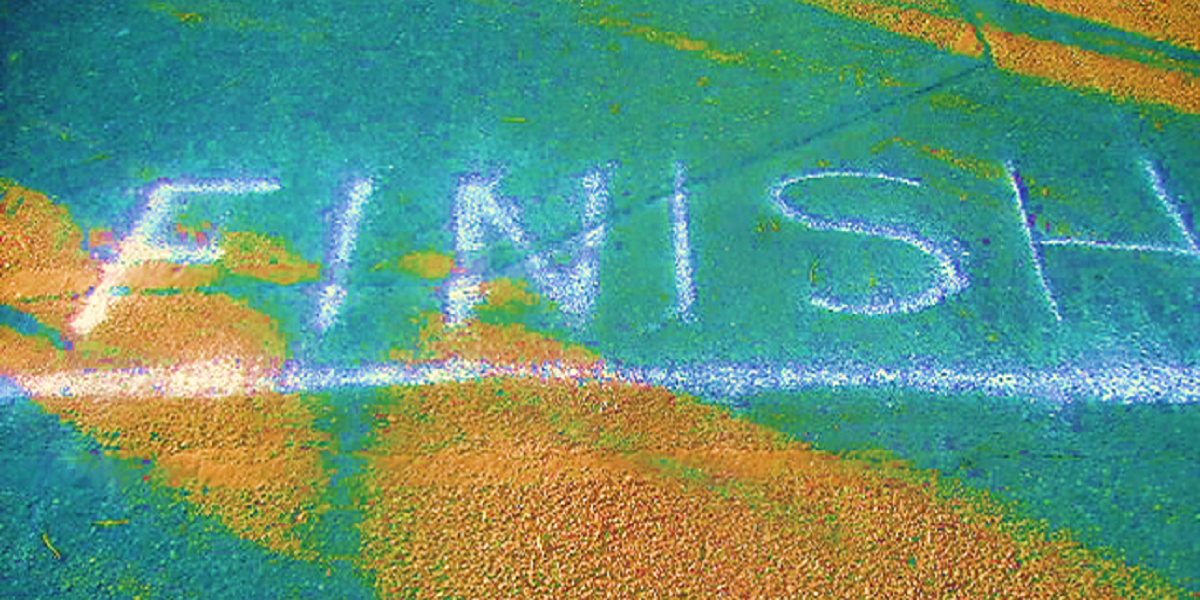Navigating our dissertation journey requires a lot of planning. Most of us have massive handbooks, daunting rubrics, and detailed templates to guide us through each document milestone, from concept and proposal through manuscript and defense. However, planning requires a Jedi mind trick I call detaching from outcomes. We are used to planning everything in our lives, from budgets to babies, but we sometimes forget we don’t control what actually happens. Nevertheless, we still need to plan.
Failing to plan (probably) is planning to fail
“Failing to plan is planning to fail” is an aphorism attributed to Benjamin Franklin. In my ruthless pursuit of robust scholarship to support this blogpost, I scanned the “apothegms and proverbs” in the U.S.C. Publishing Company’s 1914 excerpts from Poor Richard’s Almanack. The Almanack is a collection of Franklin’s sayings, written between 1732 and 1738 under the penname of Richard Saunders. For more, click here.
I lost myself in the list of pithy aphorisms but did not find a quote about planning to fail. (It was certainly entertaining reading, though. One of my favorites: “The learned fool writes his nonsense in better language than the unlearned, but still ‘tis nonsense” [Item no. 502]. Ouch.)
Social sciences dissertators, especially those who attend doctoral programs at for-profit online universities, are besieged with rules. These rules help us plan our academic strategy. However, at for-profit universities, learners often don’t get enough guidance from Chairpersons and other mentors. (I say this based on my experience as a former doctoral learner at a for-profit online university and as a current academic editor). Thus, handbooks, rubrics, and templates are essential to the dissertation planning process.
Some examples of planning
Even before I passed my comprehensive exams, I started planning. First, to get a handle on the massive project in front of me, I went through the dissertation handbook and made a list of all the tasks required to complete each milestone document and task, from concept paper through defense and publishing. Next, I identified the subtasks under each document milestone. Finally, I set up an Excel spreadsheet, entered all the tasks, and estimated how many days each task would take.
Here is one of my many timelines.

In the early months, my timing was ridiculously wrong. As each term progressed, I revised my timeline, and eventually, it became quite accurate. Without that timeline, I would not have realized I was on track to run out of time in my program. Crisis averted, thanks to planning.
As an artist, I’m all about visualizing things. I can spend all day visualizing, but not a lot of time getting things done. I’m a dreamer, less of a doer. I know this is my weakness, though, and I mitigate it with planning. Here is one of my many attempts to visualize my research study.

This plan, neatly executed in PowerPoint, was a total pie-in-the-sky dream, a hallucination of a ten-month mixed methods study lacking any basis in reality. Hey, we all start somewhere. Not only did I fail to include turnaround time for my many reviewers but I also assumed I would have little need to revise my writing—because it would naturally be perfect. I was wrong on both counts. My reviewers enjoyed at least fourteen days to return my latest train wreck, sometimes more, and I needed much longer than I anticipated to make the (ridiculous) revisions they demanded.
Detaching from outcomes
I learned a valuable lesson from this iterative process. Submitting and revising, submitting and revising—the seemingly endless cycle eventually drove the arrogance out of me. I learned to write my best work, submit with a realistic amount of hope, and detach from the outcome. I learned not to assume my writing was so stellar, my idea so ground-breaking, my research approach so unique, that they would have to grant me immediate approval, showering me with accolades and dissertation of the year rave reviews. Dream on!
Finally, I realized I had to let go of my unrealistic expectations if I wanted to earn the Ph.D. After I got over feeling personally bludgeoned by the submission and rejection process, I began to hone my detachment skills. This personal improvement effort is now standing me in good stead as I submit queries and receive rejections from agents who could help me publish my first novel.
Showing up for the work
It’s easy to submit once and loftily detach from the outcome. One rejection is tolerable. We’re tough—we can take it—once. However, the persistence to repeatedly take it on the chin and bounce back up to keep fighting separates the professionals from the dilettantes. Thanks to the hammering I received from writing my dissertation, I am now equipped (and mostly willing) to enter my writing into the broader arena and let the universe decide the outcome.
I admit, receiving rejection after rejection is disheartening. However, all those rejections are evidence that I’m in the game. I’m not on the sidelines. I’m showing up for my work. I’m learning that it doesn’t matter how discouraged I feel sometimes; all that matters is doing the work. I consciously try to compartmentalize my discouragement so I can get on with the business of writing. Feeling disappointed is only useful if it spurs me toward positive action.
Letting go of perfection
A component of detaching from outcomes is a need to let go of perfectionism. Perfectionism stifles creativity; moreover, perfectionism can hinder realistic planning, thereby bringing our forward momentum to a standstill. I have a perfection monster screaming inside me at times. I’ve learned to acknowledge my desire to be perfect, laugh at the monster, and move on.
Writers rarely write perfect first drafts. The first drafts of my dissertation milestone papers were wretched on multiple levels: scholarship, methodology, APA style, grammar . . . you name it, I butchered it. After my dissertation was approved and published, I found myriad grammar errors. I discovered I had typed a shocking number of my dois wrong because I didn’t know then that I could copy and paste them from the pdf files I was citing. Sheesh. Talk about humiliating.
Now I know to focus on making progress rather than bludgeoning myself with the impossible goal of achieving perfection. Hey, we are all human, by nature imperfect. If we already know everything, what’s the point of doing research or sharing what we’ve discovered with the world?
Summary
I encourage you to honor your dissertation journey by making a plan and showing up for your writing. Practice detaching from your desire to achieve perfection. Perfectionism is a waste of your precious life energy. Instead, submit your best, learn from your mistakes, keep writing, and let go of outcomes. The life lessons we learn from the tedious, frustrating dissertation journey may not be evident while we struggle to reach the finish line, but I promise, you will reap the benefits for the rest of your writing career.
Sources
Franklin, B. (1914). Poor Richard’s Almanack (pdf version). Waterloo, IA: U.S.C. Publishing Company. Available through Google Books: https://www.google.com
/books/edition/Poor_Richard_s_Almanack/o6lJAAAAIAAJ?hl=en&gbpv=0 (Original work published 1732–1738)


